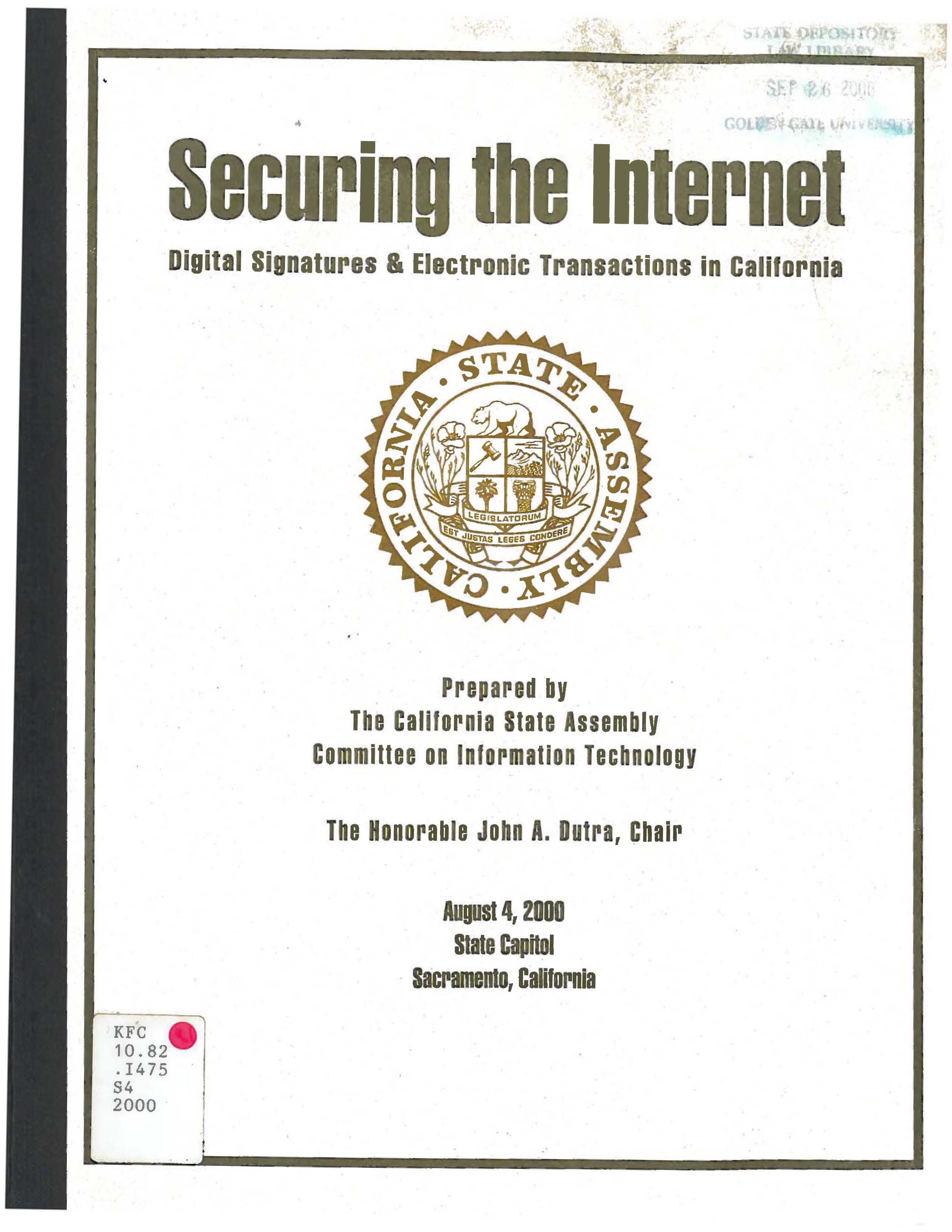Document Type
Cal State Document
Publication Date
2002
Abstract
On January 1, 2001, a new postconviction testing law was enacted in California. This law, which provides a mechanism for inmates to seek postconviction DNA testing of evidence, creates a new safety check on our criminal justice system that will ensure wrongly convicted persons have the ability to prove their innocence through the use of newly developed technology. It is the goal of the Postconviction Testing/Evidence Retention Task Force and the California law enforcement community to offer full and fair access to postconviction testing for meritorious claims.
Implementation of postconviction testing procedures raises significant questions regarding evidence retention which law enforcement agencies and the courts will need to address. I formed this Task Force in order to provide guidance to law enforcement agencies, prosecutors and the courts, on which the core responsibilities for implementation fall. Its charge was to develop consensus about the likely impact of the new law and to provide information, in the form of non-binding recommendations, to assist agencies in complying with its mandates.
The non-binding recommendations compiled in this report address evidence handling and storage issues under California's new postconviction testing law. The Task Force's deliberations and final recommendations were informed by current best practices among California law enforcement for evidence handling and storage.
Recommended Citation
California Attorney General, "Postconviction DNA Testing: Recommendations for Retention, Storage and Disposal of Biological Evidence" (2002). California Agencies. 81.
https://digitalcommons.law.ggu.edu/caldocs_agencies/81


Comments
Tangible document is undated. Date taken from cataloging record.